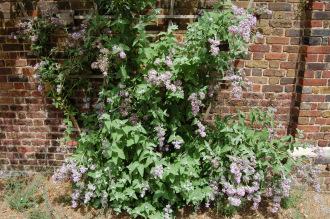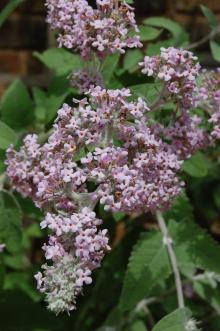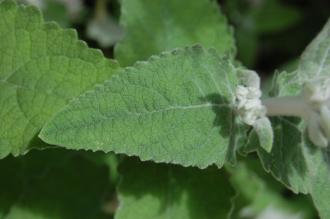
Buddleja crispa (27/07/2013, Kew Gardens, London)
Position: Full sun
Flowering period: Summer
Soil: Moist, well drained
Eventual Height: 3.5m
Eventual Spread: 4m
Hardiness: 8a, 8b, 9a, 9b, 10a, 10b
Family: Scrophulariaceae
Buddleja crispa is a slow growing deciduous shrub with a bushy arching habit . Its hairy grey/ green leaves are ovate to lanceolate with dentate margins, up to 12cm long and 4.5cm broad. Its purple fragrant flowers appear in terminal panicles, up to 10cm long and 5cm broad.

Buddleja crispa Flower (27/07/2013, Kew Gardens, London)
Buddleja crispa, commonly known as the Himalayan Butterfly Bush, is native to the Himalayas region, including north India, Afghanistan, Pakistan and south China. In its native habitat it grows in rocky slopes, exposed cliffs and thickets.
The etymological root of the binomial name Buddleja is named after Adam Buddle (1662-1715), an English botanist. Crispa is from the Latin meaning ‘wrinkled’, in reference to its leaves.
The landscape architect may find Buddleja crispa useful as a fragrant summer flowering shrub. This plant is most successful when grown against a wall. Once established this shrub is drought tolerant.
Ecologically, Buddleja crispa flowers are very attractive to nectar loving insects and birds.

Buddleja crispa Leaf (27/07/2013, Kew Gardens, London)
Buddleja crispa prefers moist, fertile, well-drained soils. It tolerates most pH of soil. It will not tolerate waterlogged soils.
Buddleja crispa requires little maintenance. Formative pruning may be carried out in March.

